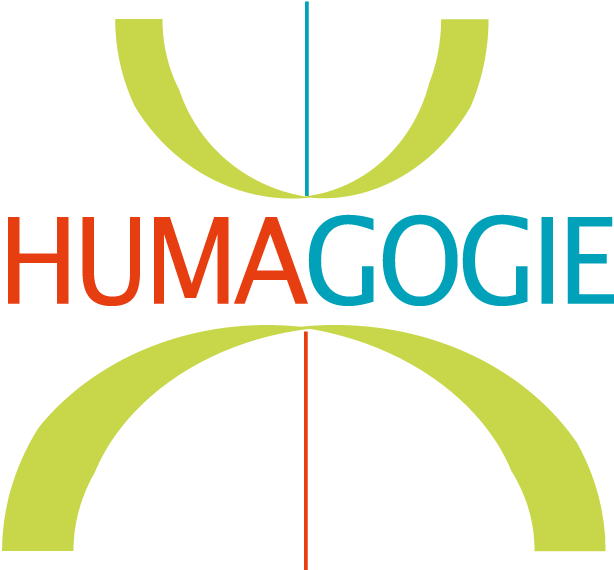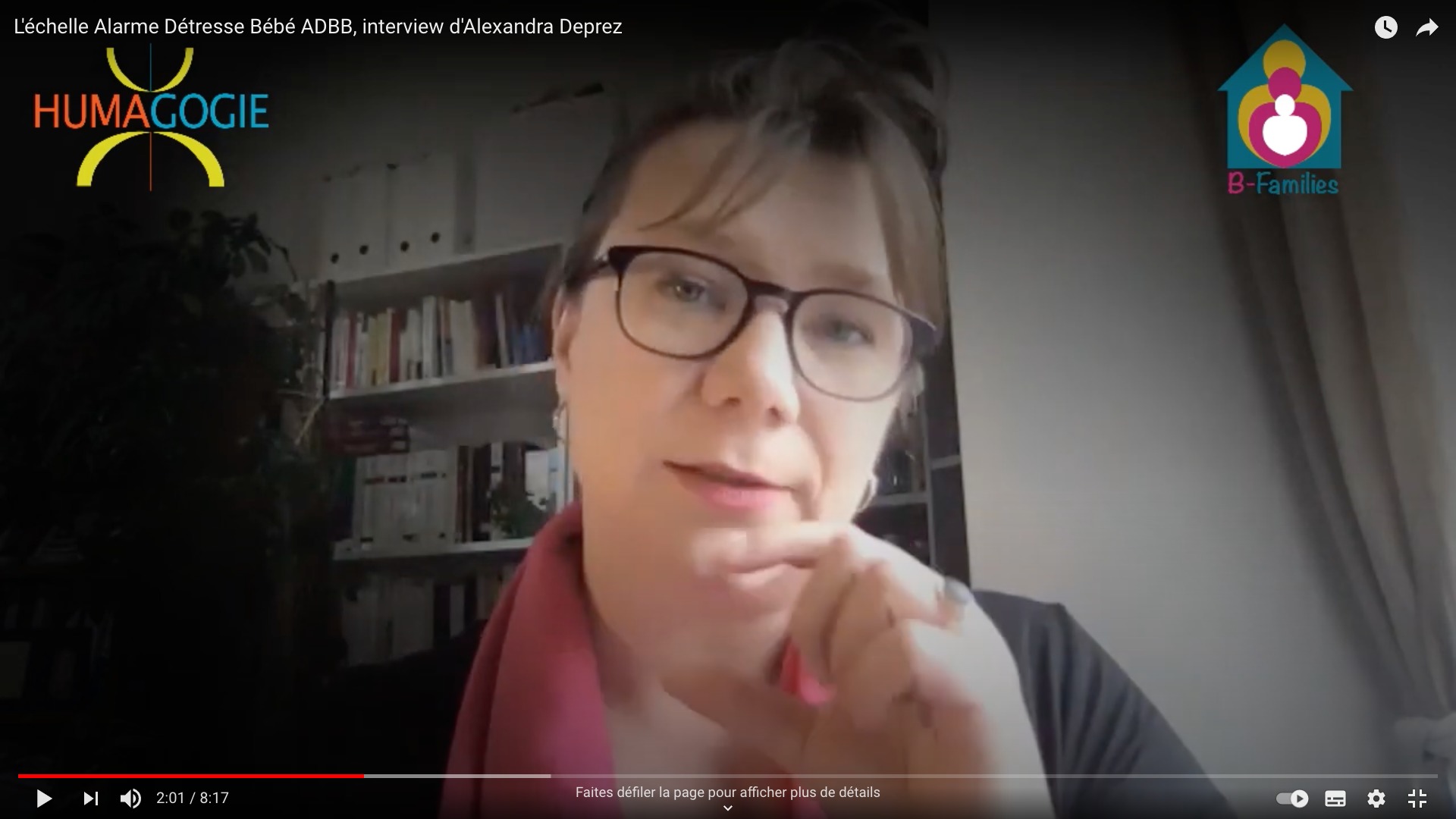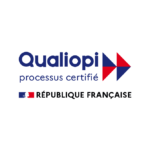Interested by the training in French ? Please consult : “Utiliser l’échelle Alarme Détresse Bébé (ADBB) Pour Évaluer Le Retrait Relationnel Du Bébé” or “Utiliser l’Echelle M-ADBB pour dépister la souffrance psychologique des bébés (0-24 mois)“
How can psychological distress in babies (0-24 months) be detected?
WHAT IS THE M-ADBB SCALE?
The M-ADBB scale is the shortened and validated version of the Alarm Distress baby Scale (ADBB), it allows for the early detection of babies who engage in relational withdrawal behaviour.
WHAT DOES IT DO?
This training, aimed at all health, mental health and childcare professionals, will enable you to quickly detect which babies might be suffering from psychological distress and possibly refer families for a more in-depth assessment or to set up support.
What is the difference between the M-ADBB and ADBB scales?
The M-ADBB scale can be used to quickly identify whether or not a baby is in psychological distress; whereas the ADBB scale includes more items for assessing relational withdrawal, so it is more in-depth and can be used to detect and assess the severity and development of withdrawal under intervention.
Training for the M-ADBB scale lasts 6 hours and for the ADBB scale, 35 or 65 hours.
To find out more, visit: https://adbb-scale.com/faq-frequently-asked-questions/
LEARNING OBJECTIVES
At the end of the course you should be able to:
- Define relational withdrawal,
- Understand the links between relational withdrawal and developmental risk,
- Name and define each of the items in the M-ADBB scale
- Use the M-ADBB scale in their professional setting
- Be able to detect babies in distress
CONTENTS OF THE TRAINING
Introduction and theoretical basis of the scale
- To understand the theoretical basis of the scale,
- and its relationship with early psychopathology.
Representing relational withdrawal
- Validation study in France and in the world
- The M-ADBB scale and detection of relational withdrawal
Learning to find your way around the M-ADBB scale
- The 5 items
- Exchanges and questions about their practices
TRAINING METHODS
The course is self-study, which means it is autonomous. It has been designed by educational engineers who are experts in e-learning. You will find videos, teaching resources and questionnaires to help you validate the skills you have acquired.
You will also have access to a forum where you are invited to participate. The trainer will regularly answer questions posted on this forum.
NB: This course is designed to raise awareness. If you would like to learn more, you will need to take the in-depth Baby Distress Alarm course (ADBB).
Other option :
- For a Team : 3-hour synchronous online webinar for 25 to 95 people. Content can be tailored to your needs. The recording can be made available for a week after the webinar, along with additional resources. Please contact us at least 30 days before the scheduled start date.
PEDAGOGICAL AND TECHNICAL SUPERVISORS
 Alexandra Deprez: Doctor in psychology, specialist in attachment theory and perinatal psychopathology. I am trained in different tools for assessing attachment at different ages (CARE -Index, Strange Situation, Adult Attachment Interview.). Attachment theory is the framework on which I based my thesis research, which focused on the effect of parental visits on babies in care. It was during this experience that I became an expert in thinking about attachment and relationships in clinical practice. For the past 10 years, I have been working in my private practice, as a trainer or supervisor, to integrate attachment into the clinic and to allow the practical contributions of this theory to be widely disseminated in the field and among professionals. Jocelyne Guillon
Alexandra Deprez: Doctor in psychology, specialist in attachment theory and perinatal psychopathology. I am trained in different tools for assessing attachment at different ages (CARE -Index, Strange Situation, Adult Attachment Interview.). Attachment theory is the framework on which I based my thesis research, which focused on the effect of parental visits on babies in care. It was during this experience that I became an expert in thinking about attachment and relationships in clinical practice. For the past 10 years, I have been working in my private practice, as a trainer or supervisor, to integrate attachment into the clinic and to allow the practical contributions of this theory to be widely disseminated in the field and among professionals. Jocelyne Guillon
Jocelyne Guillon : Instructional Designer, coordinator and Learning Community Manager.
EVALUATING AND IMPROVING THE QUALITY OF TRAINING
The evaluations are used to collect your comments and suggestions for improvement. They are also passed on to the trainers.
The assessment procedure also enables us to determine whether the trainee has acquired the knowledge whose mastery constitutes the initial objective of the action.
Before : Pre-training questionnaire to assess participants’ expectations and initial training skills.
During: Recording of connection times on the platform, answers to questionnaires to monitor your integration of pedagogical content and exercises.
After the course: On-the-spot evaluations at the end of the course (satisfaction assessment and evaluation of skills acquired), followed by an on-the-spot evaluation by questionnaire sent by e-mail, 3 months after the end of the course.
MEANS OF MONITORING THE COURSE
For this self-directed e-learning course, learning activities are monitored throughout the course by logging on to the platform, carrying out teaching activities and completing exercises.
Self-study must be carried out in a linear fashion, i.e. in the given order. Once you have completed all the training (videos and questionnaires), the connection times are tracked and the answers to the questionnaires are used to certify that the training has been completed. This will enable you to obtain the course completion certificate. You can download and print it.
NB: For the webinar (in-house for teams), learning activities are tracked by recording attendance at the webinar.
ON-SITE TRAINING FOR SEVERAL TEAMS
- Association Pré-en-bulle, Belgique
- Cook Children Hospital, Etats-Unis
- REALISM, Belgique
- BRU-STARS, Belgique
- CIUSS de Québec
- Association du réseau Périnatal AURORE – Hôpital de la Croix Rousse, France
- Département du Nord, réseau des PMI
- IHV, Institute of Health Visiting, Royaume Uni
WHO CAN LEARN TO USE THE M-ADBB SCALE?
- psychologists, child and family psychotherapists
- paediatricians, doctors
- psychomotricians, physiotherapists, osteopaths,
- specialised educators, TISF, social workers
- nursery nurses, midwives
- nursery professionals…
- 10 to 100 people
Our training courses are accessible to people with disabilities, please notify us of your needs (one month before the course) in the contact form. If you meet the pre-requisites and the public concerned, we will adapt your welcome and teaching methods.
PREREQUISITES
- Knowledge of normal child development between 0 and 2 years
- Working with babies from 0 to 24 months
DURÉE et MODALITES
- Access: 100% online
- Self-training methods: approximately 6 hours (estimated learner time in autonomous, asynchronous mode). Access to content for 2 months. Registration possible at any time
- For a Team : 3-hour synchronous online webinar for 25 to 95 people. Content can be tailored to your needs. The recording can be made available for a week after the webinar, along with additional resources. Please contact us at least 30 days before the scheduled start date.
QUALITY AND SATISFACTION
during the last training
94
98
86
41
”Well-targeted subject, theory and clear examples complemented each other perfectly. References to study authors were also very valuable.
PsychologistAnswer to the question, what are the strengths of the training?
”The clarity of the explanations, the surveys that allow you to participate and think for yourself, to see if you really understand. It's not drawn in length and it was very interesting. The videos help a lot to understand what was explained to us just before.
Pediatric nurseAnswer to the question, what are the strengths of the training?
”Very clear trainer, well structured training, great management of the computer tool, interactive
PsychologistAnswer to the question, what are the strengths of the training?
Coming soon in January 2024 : M-ADBB self-training
Autoformation (prise en charge individuelle)Option recommandée
€ 140 TTC
par personne (Tarif individuel)- 6 heures d’autoformation
- Accès à la formation pendant 2 mois
Pack administratif (devis, convention, certificat de réalisation de formation, facture) et processus certifié Qualiopi pour une prise en charge de votre formation par l’employeur ou votre organisme collecteur (FIF-PL, FAF…)
Autoformation (tarif prise en charge employeur)
€ 220 TTC
par personne (Tarif institution)- 6 heures d’autoformation
- Accès à la formation pendant 2 mois
- Pack administratif (devis, convention, certificat de réalisation de formation, facture) et processus certifié Qualiopi pour une prise en charge de votre formation par l’employeur ou votre organisme collecteur (FIF-PL, FAF…)
*Humagogie est non assujetti à la TVA, selon l’article 262 ter, I du CGI (formation continue des professionnels).
Last edition 8/11/2023



